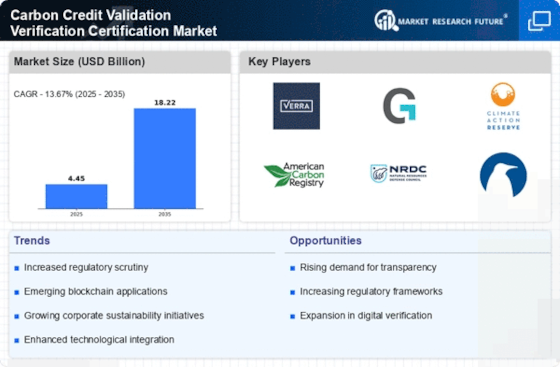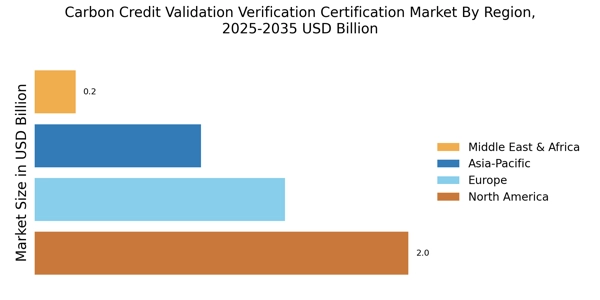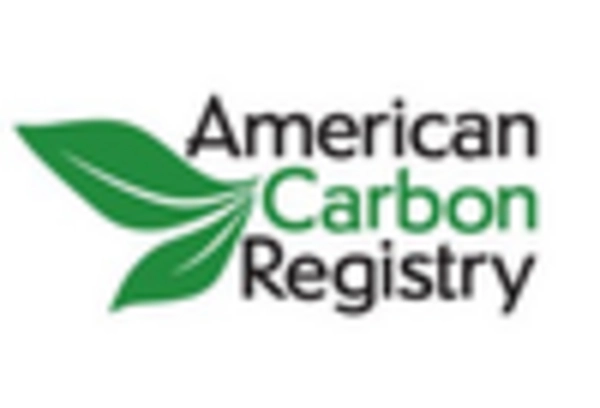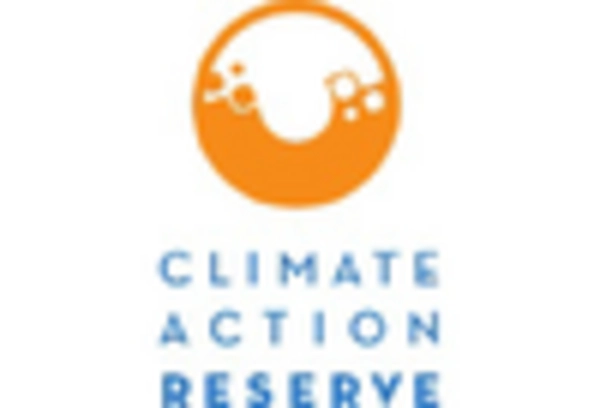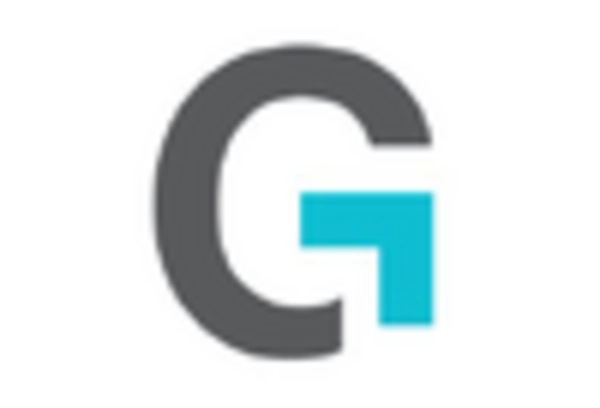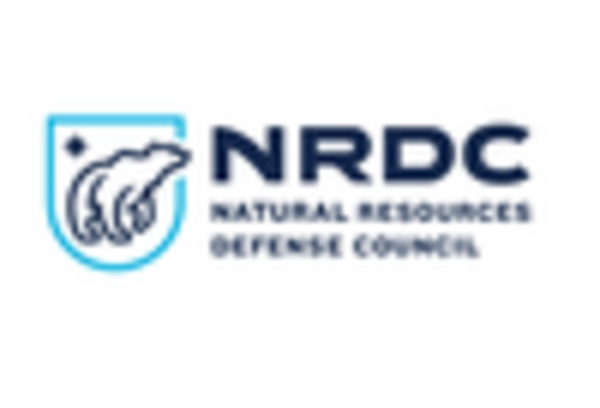Evolving Regulatory Frameworks
The Carbon Credit Validation Verification Certification Market is significantly influenced by evolving regulatory frameworks aimed at reducing greenhouse gas emissions. Governments are increasingly implementing stringent policies and regulations that necessitate accurate carbon accounting and reporting. For instance, the introduction of cap-and-trade systems in various regions has created a structured environment for carbon trading, thereby enhancing the need for reliable validation and verification processes. As of October 2025, it is estimated that over 50 countries have adopted or are in the process of adopting such frameworks, which could potentially increase the market size by 20% over the next five years. This regulatory push not only fosters compliance but also encourages investment in carbon credit projects.
Increasing Demand for Carbon Offsetting
The rising awareness of climate change and its impacts has led to an increasing demand for carbon offsetting solutions. Organizations across various sectors are actively seeking ways to mitigate their carbon footprints, which in turn drives the Carbon Credit Validation Verification Certification Market. In 2025, the market is projected to reach a valuation of approximately USD 1.5 billion, reflecting a compound annual growth rate of around 15%. This surge is largely attributed to businesses aiming to comply with environmental regulations and enhance their sustainability profiles. As more companies commit to net-zero targets, the need for credible carbon credits becomes paramount, thereby propelling the demand for validation and verification services within the industry.
Investment in Renewable Energy Projects
Investment in renewable energy projects is a significant driver for the Carbon Credit Validation Verification Certification Market. As countries and corporations pivot towards sustainable energy sources, the demand for carbon credits generated from renewable projects is expected to rise. In 2025, it is projected that investments in renewable energy will exceed USD 2 trillion, creating a robust market for carbon credits. This influx of capital not only supports the development of new projects but also necessitates rigorous validation and verification processes to ensure the integrity of carbon credits. Consequently, the certification market is likely to experience substantial growth as stakeholders seek to authenticate their contributions to emission reductions through credible carbon credit mechanisms.
Technological Advancements in Carbon Tracking
Technological advancements play a crucial role in shaping the Carbon Credit Validation Verification Certification Market. Innovations in data analytics, blockchain technology, and remote sensing are enhancing the accuracy and transparency of carbon tracking and reporting. These technologies facilitate real-time monitoring of emissions and carbon credits, thereby increasing trust among stakeholders. As of October 2025, it is anticipated that the integration of such technologies will streamline the validation and verification processes, making them more efficient and cost-effective. This could potentially lead to a 30% reduction in operational costs for certification bodies, thereby attracting more participants to the market and fostering growth in the industry.
Corporate Social Responsibility (CSR) Initiatives
The growing emphasis on Corporate Social Responsibility (CSR) initiatives among businesses is a key driver for the Carbon Credit Validation Verification Certification Market. Companies are increasingly recognizing the importance of sustainability in their operations and are integrating carbon management strategies into their CSR frameworks. This trend is evident as approximately 70% of Fortune 500 companies have set ambitious sustainability goals, which often include carbon neutrality commitments. As these organizations seek to validate their carbon offset claims, the demand for certification services is likely to rise. By 2025, the market for carbon credit certification is expected to expand as businesses strive to enhance their reputations and meet stakeholder expectations regarding environmental responsibility.


